Filipino tour guides are ambassadors of the Philippines’ rich culture and heritage, ensuring memorable experiences for visitors. They provide insights into history, traditions, and natural wonders, while promoting sustainable tourism practices and fostering cultural understanding.
Overview of the Role of a Filipino Tour Guide
A Filipino tour guide serves as a cultural ambassador, providing visitors with insights into the Philippines’ history, traditions, and natural beauty. Their role involves ensuring a smooth and enriching experience, offering detailed information about landmarks, and promoting local customs. They also handle logistics, safety, and emergency situations, making them indispensable in shaping memorable tours. Their expertise fosters cultural appreciation and supports the growth of sustainable tourism in the Philippines.
Importance of Tour Guides in the Philippines
Tour guides play a vital role in promoting the Philippines’ cultural heritage and natural wonders. They bridge the gap between visitors and local communities, fostering understanding and appreciation. By sharing historical insights and ensuring safe, enjoyable experiences, they contribute to the growth of tourism, which is a significant economic driver. Their expertise enhances the overall travel experience, making them indispensable ambassadors for the country’s rich and diverse culture.
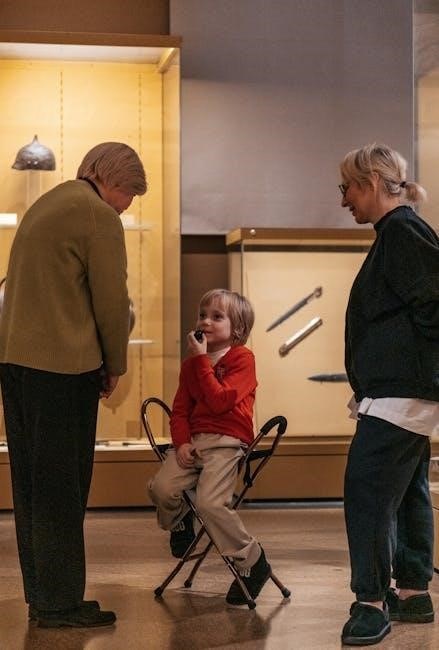
Key Responsibilities of a Filipino Tour Guide
Filipino tour guides ensure safety, provide historical insights, and manage emergencies. They cater to diverse needs, fostering memorable experiences while preserving cultural heritage and natural beauty responsibly.
Ensuring Safety and Comfort of Tourists
Filipino tour guides prioritize tourists’ safety and comfort, ensuring hazard-free experiences. They handle emergencies with first aid and clear communication, while providing accessible itineraries and hydration. Cultural sensitivity is maintained to respect local norms, enhancing overall satisfaction and memorable journeys.
Providing Historical and Cultural Insights
Filipino tour guides offer deep insights into the Philippines’ history and culture, enriching visitors’ understanding. They share stories of historical sites, traditions, and local customs, making each tour educational and engaging. Their knowledge bridges the past and present, fostering appreciation for the nation’s heritage and promoting cultural exchange among tourists from diverse backgrounds, ensuring a meaningful and memorable experience for all.
Handling Emergency Situations
Filipino tour guides are trained to handle emergencies, ensuring tourist safety and comfort. They are prepared for natural disasters, medical issues, or unexpected events, providing immediate assistance and clear communication. Their knowledge of emergency protocols and evacuation routes helps manage crises effectively, while their ability to remain calm under pressure reassures tourists. Guides also coordinate with local authorities to resolve situations quickly, demonstrating their commitment to safeguarding visitors during unpredictable circumstances.

Qualifications and Training
Filipino tour guides undergo rigorous training, including workshops on cultural history, language proficiency, and customer service. Many obtain certifications from the Department of Tourism, ensuring professional and knowledgeable guidance.
Required Certifications for Tour Guides in the Philippines
Filipino tour guides must obtain certifications from the Department of Tourism (DOT) and undergo training programs. Accreditation ensures guides meet professional standards, providing accurate cultural and historical insights. Tour guides often earn TESDA certifications in tour guiding and customer service. First aid training is also required to handle emergencies effectively. These certifications ensure a safe and enriching experience for tourists while promoting the Philippines’ heritage responsibly.
Importance of Language Proficiency
Language proficiency is crucial for Filipino tour guides to communicate effectively with diverse tourists. Fluency in English and other languages enhances their ability to convey cultural insights and historical details. Clear communication ensures seamless interactions, improving tourists’ experiences. Additionally, multilingual skills expand the guide’s reach, catering to international visitors and fostering global understanding of Philippine heritage.
Cultural and Historical Knowledge Requirements
Filipino tour guides must possess deep knowledge of the Philippines’ history, customs, and landmarks. Understanding the cultural significance of festivals, traditions, and historical sites is essential for providing authentic and engaging tours. This expertise enables guides to share insightful stories, fostering a meaningful connection between tourists and the local heritage. Their role in preserving and promoting cultural identity makes their knowledge a cornerstone of the tourism experience.

Popular Tourist Destinations in the Philippines
The Philippines boasts iconic spots like Boracay’s beaches, Chocolate Hills, and Tubbataha Reefs. These destinations highlight the country’s natural beauty and cultural richness, attracting global travelers.
Top Cultural and Historical Sites
The Philippines is home to numerous cultural and historical sites, such as Intramuros, Fort Santiago, and Barasoain Church, which reflect its Spanish colonial past. These landmarks offer insights into the nation’s struggle for independence and its rich heritage. Tourists flock to these sites to experience the blend of history and culture, making them essential destinations for anyone exploring the Philippines. Filipino tour guides provide detailed narratives, bringing these historical gems to life and fostering a deeper appreciation for the country’s past.
Best Natural Wonders and Landmarks
The Philippines boasts breathtaking natural wonders, including the iconic Chocolate Hills in Bohol and the stunning Tubbataha Reefs Natural Park, a UNESCO World Heritage Site. The Puerto Princesa Subterranean River, another UNESCO gem, captivates visitors with its lush landscapes and underground marvels. Filipino tour guides expertly showcase these landmarks, offering insights into their ecological significance and ensuring unforgettable experiences for travelers while promoting sustainable tourism practices to preserve these natural treasures for future generations.
Emerging Tourist Hotspots
The Philippines is home to emerging tourist hotspots like Siargao, known for its surfing and island vibes, and El Nido, famous for its limestone cliffs and crystal-clear lagoons. These destinations are gaining global attention for their untouched beauty and unique experiences. Filipino tour guides play a vital role in promoting these spots sustainably, ensuring that tourism benefits local communities while preserving the environment. They highlight hidden gems and authentic cultural practices, making these hotspots must-visit destinations for adventurous travelers seeking unforgettable experiences in the Philippines.
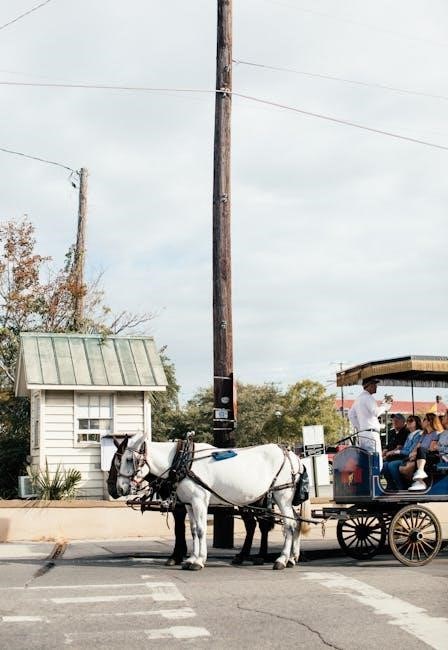
Cultural Etiquette and Sensitivity
Cultural etiquette and sensitivity are vital for Filipino tour guides to ensure respectful interactions with locals and meaningful experiences for tourists, fostering mutual understanding and appreciation of traditions.
Understanding Filipino Customs and Traditions
Filipino customs and traditions reflect a vibrant blend of cultural influences, including Spanish colonial history, indigenous practices, and Asian values. Respect for elders, hospitality, and religious devotion are central to Filipino identity. Guides must understand these customs to provide authentic and culturally sensitive tours, ensuring visitors appreciate the deep-rooted traditions and values of the Filipino people while fostering cross-cultural understanding and respect.
Respecting Local Norms and Practices
Respecting local norms and practices is crucial for Filipino tour guides to ensure harmonious interactions between tourists and communities. Guides must educate visitors on cultural sensitivities, such as proper attire for religious sites or traditional greetings, to avoid misunderstandings. By fostering mutual respect, guides preserve the Philippines’ cultural heritage and promote positive experiences for both visitors and locals, enriching the tourism experience while maintaining community pride and dignity.
Communicating Effectively with Local Communities
Effective communication with local communities is vital for Filipino tour guides to foster positive interactions. Guides must speak local languages, understand cultural nuances, and engage respectfully to ensure tourists feel welcomed. By actively listening and clearly explaining customs, guides bridge gaps between visitors and locals, building trust and mutual respect. This enhances the tourism experience while preserving the community’s cultural identity and promoting harmonious relationships.
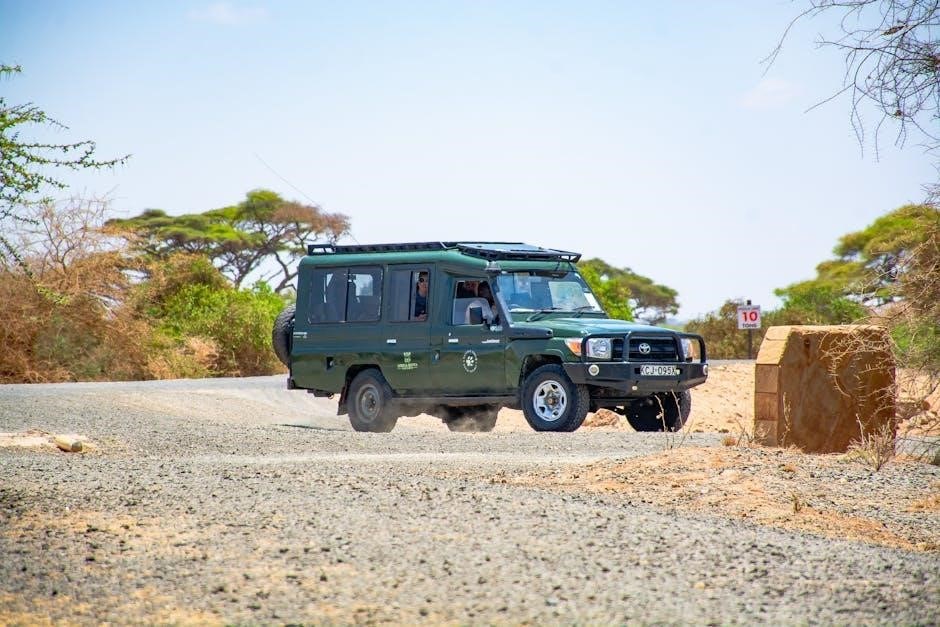
Challenges Faced by Filipino Tour Guides
Filipino tour guides face challenges such as language barriers, managing diverse tourist expectations, and coping with seasonal tourism fluctuations, requiring adaptability and resilience to ensure quality service.
Dealing with Language Barriers
Language barriers pose a significant challenge for Filipino tour guides, as they cater to diverse international tourists. Guides must communicate effectively in multiple languages to ensure clear explanations of cultural and historical sites. While English is widely spoken, proficiency in other languages like Mandarin, Japanese, or Korean can enhance the tourist experience. Many guides undergo language training or use translation tools to bridge gaps, ensuring seamless communication and fostering meaningful connections with visitors from around the world.
Managing Diverse Tourist Expectations
Filipino tour guides face the challenge of managing diverse tourist expectations, as visitors vary in preferences, cultural backgrounds, and interests. Guides must adapt to these differences, ensuring personalized experiences while balancing group dynamics. This requires strong communication skills, empathy, and the ability to anticipate needs. From adventure seekers to history enthusiasts, guides must tailor narratives and activities to satisfy all, fostering memorable and inclusive experiences that meet the unique demands of each traveler.
Coping with Seasonal Fluctuations in Tourism
Filipino tour guides must adapt to seasonal tourism fluctuations, ensuring consistent service quality during peak and off-peak periods. During high demand, guides manage larger groups and increased bookings, while off-season requires innovative strategies like offering specialized tours or collaborating with local businesses. This adaptability ensures sustainable livelihoods and maintains the Philippines’ appeal as a year-round destination, showcasing resilience and creativity in the tourism industry.
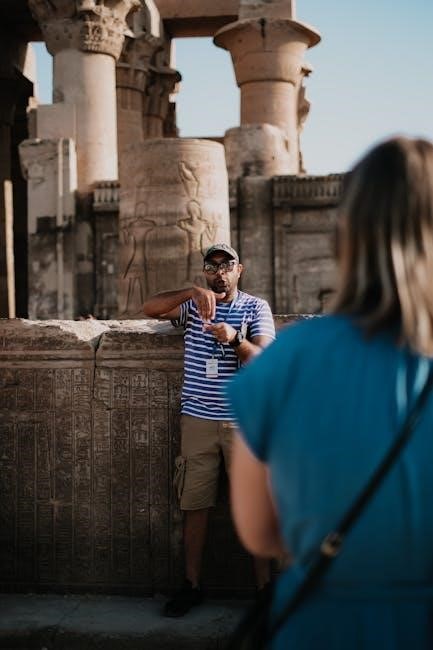
Marketing Strategies for Filipino Tour Guides
Filipino tour guides leverage social media, online platforms, and partnerships with travel agencies to promote services, ensuring visibility and attracting diverse clientele globally.
Utilizing Social Media for Promotion
Filipino tour guides effectively use social media platforms like Instagram and Facebook to showcase destinations, share engaging content, and interact with potential clients. By posting high-quality visuals, customer testimonials, and behind-the-scenes insights, they build trust and attract followers. Leveraging hashtags and collaborating with influencers or travel bloggers further enhances their online presence, reaching a broader audience and driving bookings. This digital approach ensures their services remain competitive in the global tourism market.
Building a Strong Online Presence
A strong online presence is crucial for Filipino tour guides to attract global travelers. Creating professional websites or profiles on platforms like TripAdvisor and Google My Business helps establish credibility. Regular updates, customer reviews, and SEO-optimized content ensure visibility in search results. Engaging with travelers through blogs, videos, and social media fosters trust and showcases expertise, making guides more accessible and appealing to potential clients seeking authentic Philippine experiences.
Networking with Travel Agencies and Tour Operators
Networking with travel agencies and tour operators is vital for Filipino tour guides to expand their reach and opportunities. Building strong relationships with these entities can lead to collaborations, referrals, and exposure to a broader audience. By partnering with reputable agencies, guides can offer tailored tour packages, enhancing their credibility and attracting more clients. Regular communication and updates on industry trends also ensure guides stay competitive and aligned with market demands, fostering long-term success in the tourism industry.
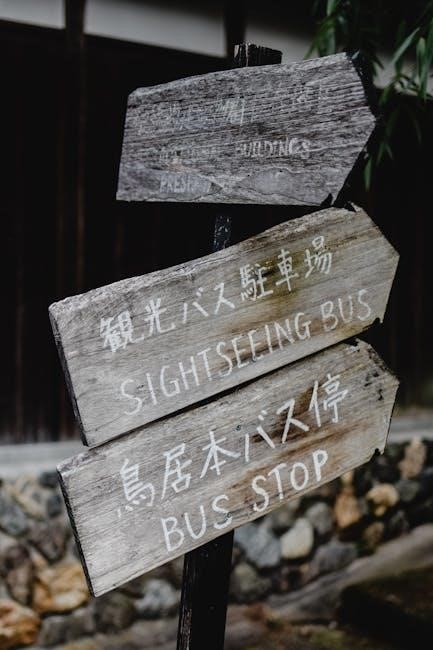
Technology and Innovation in Tour Guiding
Technology and innovation are transforming tour guiding in the Philippines, with digital tools like augmented reality, AI, and mobile apps enhancing the visitor experience and improving guide efficiency;
Using Digital Tools for Enhanced Tours
Filipino tour guides now utilize digital tools like mobile apps, interactive maps, and augmented reality to deliver immersive experiences. These technologies provide real-time information, language translation, and virtual previews of attractions, enhancing engagement. Guides can also manage bookings and itineraries efficiently through digital platforms, ensuring seamless tours. Additionally, eco-friendly digital brochures reduce environmental impact while offering accessible, detailed insights into the Philippines’ cultural and natural wonders.
Impact of Virtual Tours and Augmented Reality
Virtual tours and augmented reality (AR) are revolutionizing the way Filipino tour guides present destinations. These technologies allow tourists to explore sites remotely, enhancing accessibility and engagement. AR overlays historical and cultural information onto real-world views, creating immersive experiences. Virtual tours also enable pre-tour planning and post-tour recaps, enriching the overall journey. This innovation not only attracts tech-savvy travelers but also supports sustainable tourism by reducing physical impact while preserving the Philippines’ cultural and natural heritage.
Integrating AI for Personalized Tour Experiences
AI technology is transforming Filipino tour guiding by offering personalized experiences tailored to individual preferences. By analyzing data on tourists’ interests and behaviors, AI enables guides to adapt itineraries dynamically. This innovation enhances engagement, providing real-time insights and recommendations. AI-powered tools also integrate with augmented reality, creating immersive storytelling. Additionally, AI-driven translation services bridge language gaps, ensuring seamless communication for international visitors, making tours more inclusive and enriching for diverse travelers. This integration elevates the quality of Philippine tourism experiences.
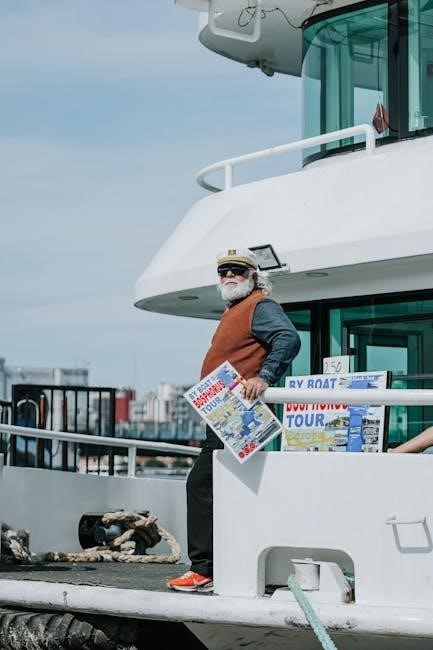
Environmental and Sustainable Tourism
Filipino tour guides promote eco-friendly practices, encouraging responsible travel to preserve the Philippines’ natural beauty and cultural heritage, while educating tourists on environmental conservation and sustainable tourism practices.
Promoting Eco-Friendly Practices
Filipino tour guides emphasize sustainable tourism by encouraging eco-friendly habits, such as reducing plastic use and supporting local conservation efforts. They educate tourists on responsible environmental practices, fostering a deeper appreciation for the Philippines’ natural landscapes. By collaborating with communities, guides ensure that tourism benefits both visitors and the environment, promoting a culture of sustainability and preservation for future generations.
Supporting Local and Responsible Tourism
Filipino tour guides play a vital role in promoting local communities by supporting small businesses and artisans. They encourage tourists to engage with local culture authentically, fostering meaningful connections. By collaborating with local stakeholders, guides ensure that tourism benefits are shared equitably. This approach not only preserves cultural heritage but also promotes environmentally responsible practices, ensuring sustainable development for future generations while maintaining the Philippines’ unique charm and natural beauty for visitors to enjoy responsibly.
Educating Tourists on Environmental Conservation
Filipino tour guides emphasize the importance of environmental conservation by educating tourists on sustainable practices. They promote awareness about protecting marine life, forests, and wildlife, encouraging responsible behavior. Guides often highlight the significance of reducing waste and supporting eco-friendly initiatives. By fostering a deeper appreciation for the Philippines’ natural beauty, they inspire visitors to contribute to preserving these treasures for future generations, ensuring a harmonious balance between tourism and environmental stewardship.
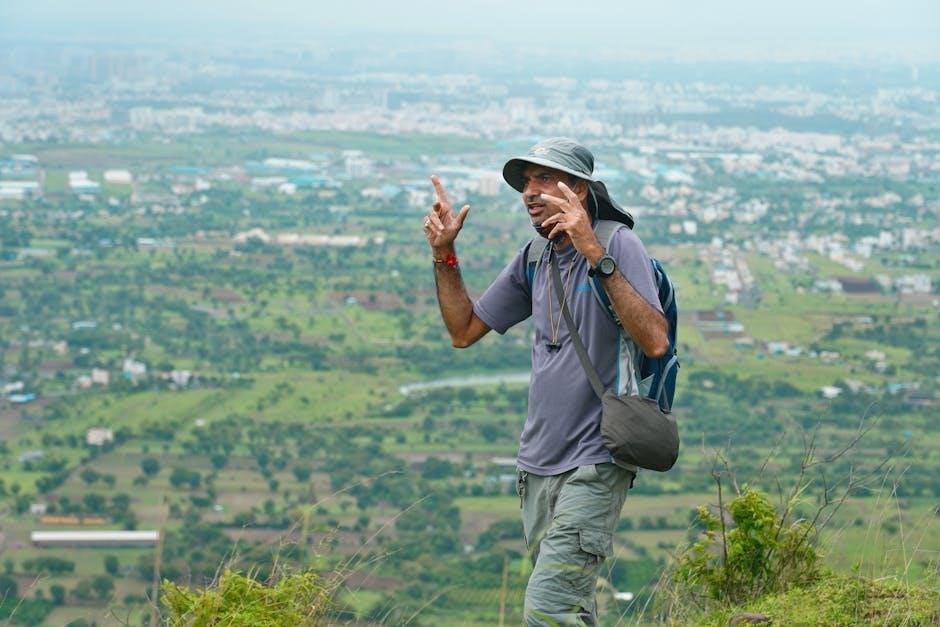
Future Trends in Filipino Tour Guiding
Filipino tour guiding is evolving with technology integration, niche market focus, and enhanced training programs to meet diverse traveler demands and preferences in a post-pandemic world.
Adapting to Post-Pandemic Travel Preferences
Filipino tour guides are shifting strategies to align with post-pandemic travel trends, emphasizing safety, personalized experiences, and technology integration. With increased demand for smaller group tours and sustainable practices, guides are now prioritizing unique, localized experiences while ensuring health protocols. Digital tools, such as virtual tours and real-time updates, are being leveraged to enhance engagement and cater to evolving traveler preferences, ensuring the Philippines remains a competitive destination in the global tourism landscape.
Focus on Niche Tourism Markets
Filipino tour guides are increasingly targeting niche tourism markets, such as adventure seekers, eco-tourists, and cultural enthusiasts. Post-pandemic, travelers are gravitating toward specialized experiences like wellness retreats, food tours, and luxury travel. Guides are tailoring tours to cater to these specific interests, ensuring personalized and immersive experiences. By leveraging digital tools and SEO strategies, they effectively reach these niche audiences, highlighting the Philippines’ unique offerings and fostering deeper connections with travelers seeking distinctive experiences.
Enhancing Tour Guide Training Programs
Filipino tour guide training programs are evolving to meet modern demands, focusing on advanced language skills, cultural insights, and crisis management. Emphasizing sustainability and digital literacy, these programs now incorporate virtual reality tools and eco-friendly practices. Collaboration with tourism experts ensures updated curricula, equipping guides with the latest trends and technologies. Enhanced training aims to produce highly skilled professionals ready to deliver exceptional, personalized experiences, aligning with global tourism standards and the Philippines’ unique cultural heritage.

